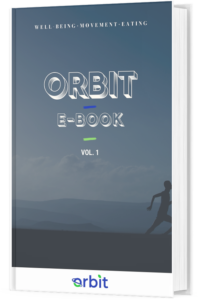There is nothing quite like drinking a nice, cold beer after long and demanding exercise!
Many sport and exercise communities have become synonymous with a post-game, post-exercise beer. For some, it is baffling to understand the relationship between the two because of the negative perception of beer. As you will come to understand, beer does have its benefits and might be a decent choice of post-exercise drink.
What is considered one drink?
First, it is important to quantify the “One Drink”. One drink is typically considered 12 ounces (355 ml) of regular or light beer by USA standards. It is also equivalent to 5 ounces (145 ml) of wine, or 1.5 ounces (44 ml) of 40% hard alcohol.2
Macro and Micronutrients of alcohol beverages
We will discuss mostly beer during this writing. However, wine is also a common alcohol beverage and shares many characteristics with beer. Here are some of the most common macro and micronutrients of wine and beer:
- Wine contains:
- Carbohydrates
- Vitamin B
- Iron – sometimes contributing to 20% of dietary intake
- Riboflavin
- Beer contains:
- Vitamin B
- Minerals in varying quantities – depends on the soil where the barley was grown
- Iron – For the beer enthusiasts, sorghum and maize beers have a higher iron content than barley beers
To fully appreciate the implication of beer in one’s diet, the following describes some of the daily dietary intake percentages for regular beer drinkers:
“For subjects consuming 1-2 beers per day, alcoholic beverages provided 14% of calories, 11% of dietary protein, 12% of dietary carbohydrates, 9% dietary phosphorus, 7% dietary riboflavin, and 5% of dietary niacin.”
Denke, M. A. (1999)
Presence of Phytochemicals – Polyphenols
Alcoholic beverages have many different types of phytochemicals that are biologically active. In beer and wine, they are called polyphenols. Polyphenols are components of plant-derived foods that ultimately reduce the risk of chronic diseases.4
Further, polyphenols contribute to greater gut health, cardiovascular health, as well as, improvements in obesity, hypertension, diabetes, and metabolic syndrome.4
Convinced yet?
Impurities
For many, it would be great news to hear that alcoholic beverages could be the solution to their health-related issues. However, alcoholic beverages are not without impurities.2
One of the well-known impurities to brewing and packaging is the presence of lead in beer. In more extreme cases, some beer sources have been reported to have silicon, asbestos, and aluminium. 2
But do not let that push you away from drinking a cold brew! Impurities like these are common in all foods. It is an issue that relates to much of the food industry. For example, canned soft drinks have more aluminium than canned beers. So, do not be discouraged but keep in mind the downsides of processed drinks like beer and other types of alcohol. 2
Alcohol and Recovery
Generally, when exercising, people lose water and electrolytes through sweat. Being able to recover from a bout of exercise, especially in hot conditions, requires proper rehydration. 3
In western culture, it is common to drink beer after exercise. It is usually a time to bond with friends and family or just an afternoon after having worked around the house, for example. 3
In these circumstances, it is fair to assume that the beer drinking is not specifically targeted at bodily rehydration. However, people fail to realize that except for sodium and alcohol, beer has similar properties than that of sports drinks. It contains mainly water, and as mentioned above, nutrients like carbohydrates, minerals, and vitamin B. 3
Therefore, when having a refreshing beer after physical exertion has not been shown to have a negative effect on hydration. In fact, roughly 600 ml of beer can be taken without having harmful consequences on rehydration. 3
Regardless, drinking fluids within the 2 hours following exercise is not enough to fully rehydrate. This is true whether one drinks beer or not. 3
Eventually, as many of you know, beer does make you want to urinate. This means that even though there are no direct consequences of drinking moderate levels of beer post-exercise, it will slow down the time it takes to rehydrate. It is mostly due to the urine output that is likely to happen. This is especially true when more alcohol is ingested. 3
What about before exercise?
The association of alcohol with sports tends to take place after the exercise has happened. But what about those who have a beer before doing exercise? 1
There is research that tested pre-exercise beer, water, and non-alcoholic beer drinking. Results showed1:
- Drinking water or a regular (4.6%) beer before an exercise bout significantly decreased blood sodium level during the exercise (which contrinutes to dehydration). Participants did not drink fluids during the exercise duration.
- Interestingly, non-alcoholic beer did not have the same result. Those who drank non-alcoholic beer before the exercise maintained their sodium levels during the exercise.
This may be good news for those who like the taste of beer. But is non-alcoholic beer really what you want to drink? Maybe, maybe not?
Unfortunately for our avid beer drinking audience, alcoholic beer drinking pre-exercise showed an increase in plasma potassium level which is associated with muscle fatigue and less muscle strength. It demonstrates a lower level of performance if beer is the beverage of choice before exercising. 1
Verdict
The evidence is clear that alcohol after having exercised does not lead to adverse health conditions. Beer and wine seem to provide nutrients that the body needs. Still, it does slow down hydration which may be an issue for more serious athletes.
On the other hand, drinking alcoholic beer before exercise is unquestionably bad for muscle performance. So, pre-drinking before your upcoming big game may not be the best choice.
References
2 Denke, M. A. (1999). Nutritional and health benefits of beer.





